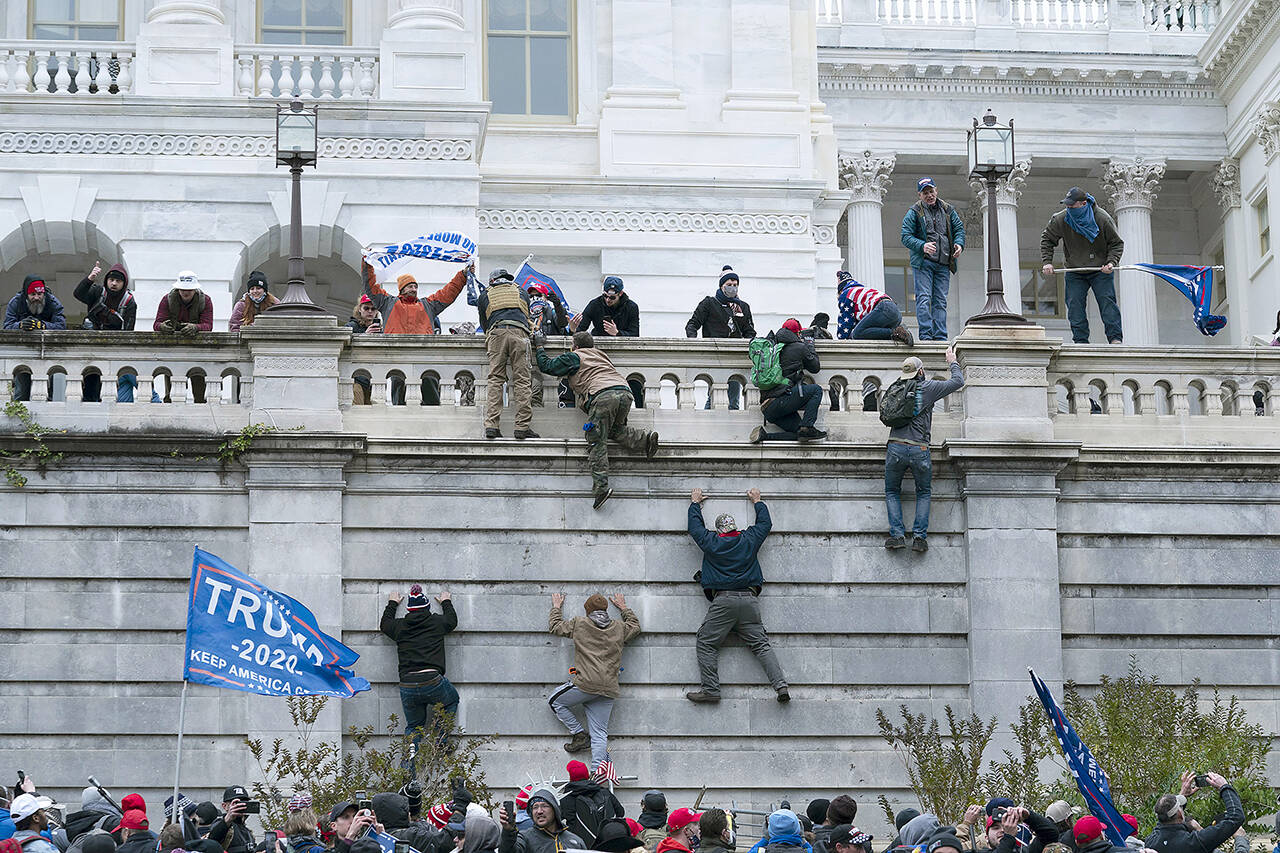By The Herald Editorial Board
Absent those who still maintain that the storming of the U.S. Capitol on Jan. 6, 2021, was “legitimate political discourse” or “a normal tourist visit,” there could be just enough bipartisan support in Congress to adopt reforms of the 135-year-old law that was used to accept the electoral college votes that confirmed Joe Biden’s 306-232 win in the 2020 presidential election.
That those reforms are necessary now is clear from that day’s events; that there was enough ambiguity in the Electoral Count Act of 1887 to provide even a wafer-thin hint of potential in the minds of President Trump and his supporters that day to attempt to change, halt or delay the procedural count; attempt to insert fake slates of electors and suggest that Vice President Mike Pence had the constitutional authority to take such actions.
None of that — of course — would have been held up in any legal challenge, but the Electoral Count Act’s lack of clarity was enough to allow a losing presidential candidate and members of his ad hoc legal team to plot to overturn the election and for Trump to rally his believers in the nation’s capital, under the violent fantasy that they could take by force what they were told they had been denied.
Quickly, before it melts under the heat of the midterm elections, the Senate and House need to pass the update to the Electoral Count Act, clarifying its language and making changes that would limit future possible mischief by rouge actors, regardless of party. Even a year and a half removed from Jan. 6, that threat to true election integrity remains; among those denying the results of the 2020 election are Trump-backed candidates such as Mark Finchem, the Republican candidate for secretary of state in Arizona, who has co-sponsored a bill in its legislature that would give the Republican-controlled majority the authority to overturn election results.
“The Electoral Count Act of 1887 just turned out to be more troublesome, potentially, than anybody had thought,” Sen. Roy Blunt of Missouri, the senior Republican on the Senate rules panel said recently in a New York Times report. “The language of 1887 is really outdated and vague in so many ways. Both sides of the aisle want to update this act.”
Introduced by Sens. Susan Collins, R-Maine, and Joe Manchin, D-W.Va., the improved Electoral Count Act would clarifying ambiguous terms in the act and would:
Clarify that the vice president’s role in certifying the vote count is “solely ministerial,” a ceremonial role;
Increase the threshold for allowing a vote to challenge a state’s slate of electors from one senator and one representative to a fifth of each chamber’s members; and
Stipulate that only governors or other state officials, such as a secretary of state, determined by state law, would have the sole authority for certifying and submitting slates of electors.
Others have suggested an even higher bar for some provisions. Harvard Law School emeritus professor Lawrence Tribe and others, in a recent Washington Post commentary, pointed out that 139 Republican House members objected to one state’s electors, nearly a third of the House members, before mobs overran the Capitol and delayed voting. Tribe suggests setting the threshold at a third of each chamber’s members.
That Congress is having to go in after the fact of Jan. 6 to fix the procedures for counting electors points to the electoral college’s inherent clunkiness and its dismissal of direct democracy.
The electoral college, which awards electors to each state based on the same rationale used to determine the size of each state’s delegation in the House of Representatives, plus the two senators, results in a roughly proportional system based on each state’s population. But that proportional system, because electoral votes are “winner take all,” leaves open the possibility that — as has happened four times in the nation’s history and most recently in 2000 and 2016 — a presidential election can be determined by the electoral college vote outcome, even when it conflicts with the result of the popular vote.
Even when the popular vote and the electoral college count are in agreement as to the final outcome, the process relegates the will of the people, the ethic of “one person, one vote” to the equivalent of a set of data in an algorithm.
Doing away with the electoral college would require a constitutional amendment or another workaround, such as proposed by National Popular Vote. The advocacy group has asked state legislatures to pass a law that awards all of a state’s electors not to the winner in that state but to the candidate who wins the popular vote in all 50 states and the District of Columbia. To enact the change, states representing 270 electoral votes — the same threshold that determines the presidency — would have to the adopt the popular vote legislation. To date, 16 states, including Washington state, and totaling 195 electoral votes, have adopted the change.
But neither the popular vote override nor a constitutional amendment are likely any time soon. The next best option — offering more assurance that we won’t see another debacle like Jan. 6 — is reform of the Electoral Count Act.
Talk to us
> Give us your news tips.
> Send us a letter to the editor.
> More Herald contact information.

























